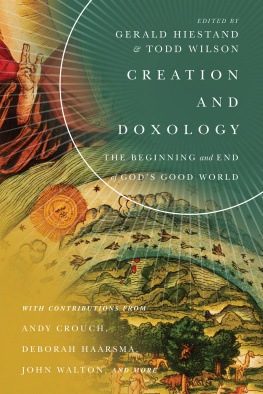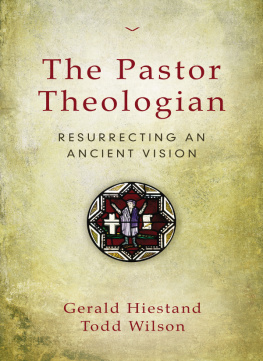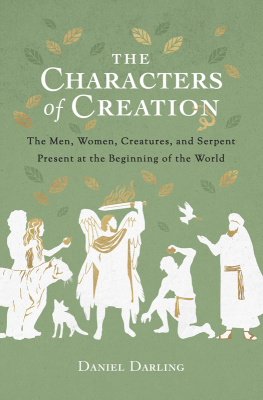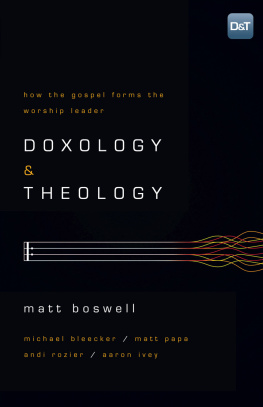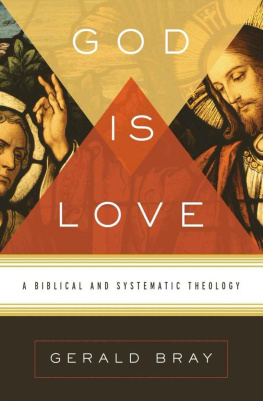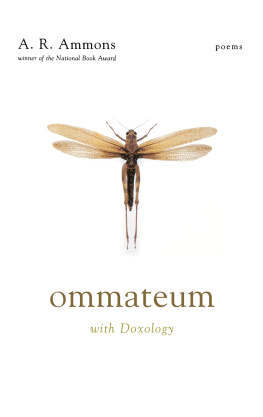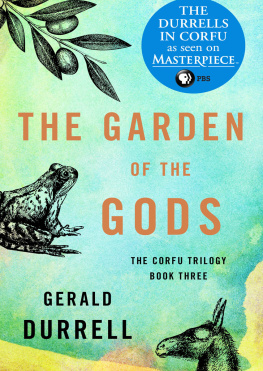Gerald Hiestand - Creation and Doxology: The Beginning and End of Gods Good World
Here you can read online Gerald Hiestand - Creation and Doxology: The Beginning and End of Gods Good World full text of the book (entire story) in english for free. Download pdf and epub, get meaning, cover and reviews about this ebook. year: 2018, publisher: InterVarsity Press / IVP Academic, genre: Religion. Description of the work, (preface) as well as reviews are available. Best literature library LitArk.com created for fans of good reading and offers a wide selection of genres:
Romance novel
Science fiction
Adventure
Detective
Science
History
Home and family
Prose
Art
Politics
Computer
Non-fiction
Religion
Business
Children
Humor
Choose a favorite category and find really read worthwhile books. Enjoy immersion in the world of imagination, feel the emotions of the characters or learn something new for yourself, make an fascinating discovery.
- Book:Creation and Doxology: The Beginning and End of Gods Good World
- Author:
- Publisher:InterVarsity Press / IVP Academic
- Genre:
- Year:2018
- Rating:5 / 5
- Favourites:Add to favourites
- Your mark:
- 100
- 1
- 2
- 3
- 4
- 5
Creation and Doxology: The Beginning and End of Gods Good World: summary, description and annotation
We offer to read an annotation, description, summary or preface (depends on what the author of the book "Creation and Doxology: The Beginning and End of Gods Good World" wrote himself). If you haven't found the necessary information about the book — write in the comments, we will try to find it.
Creation and Doxology: The Beginning and End of Gods Good World — read online for free the complete book (whole text) full work
Below is the text of the book, divided by pages. System saving the place of the last page read, allows you to conveniently read the book "Creation and Doxology: The Beginning and End of Gods Good World" online for free, without having to search again every time where you left off. Put a bookmark, and you can go to the page where you finished reading at any time.
Font size:
Interval:
Bookmark:
and
Doxology
of GODS GOOD WORLD
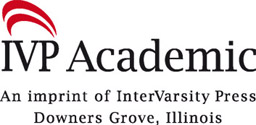
InterVarsity Press
P.O. Box 1400, Downers Grove, IL 60515-1426
ivpress.com
2018 by Gerald L. Hiestand and Todd A. Wilson
All rights reserved. No part of this book may be reproduced in any form without written permission from InterVarsity Press.
InterVarsity Pressis the book-publishing division of InterVarsity Christian Fellowship/USA, a movement of students and faculty active on campus at hundreds of universities, colleges, and schools of nursing in the United States of America, and a member movement of the International Fellowship of Evangelical Students. For information about local and regional activities, visit intervarsity.org.
All Scripture quotations, unless otherwise indicated, are taken from The Holy Bible, New International Version, NIV. Copyright 1973, 1978, 1984, 2011 by Biblica, Inc.Used by permission of Zondervan. All rights reserved worldwide. www.zondervan.com. The NIV and New International Version are trademarks registered in the United States Patent and Trademark Office by Biblica, Inc.
Cover design: David Fassett
Interior design: Beth McGill
Image: The Creation, from Luther Bible, German School / Bible Society, London, UK / Bridgeman Images
ISBN 978-0-8308-7403-3 (digital)
ISBN 978-0-8308-5386-1 (print)
This digital document has been produced by Nord Compo.
To the Fellows of the St. Anselm Fellowship,
who have been with us since the beginning.
A S WITH THE PREVIOUS VOLUMES in our Center for Pastor Theologians conference series, we are especially grateful to the men and women who served as presenters at the conference and who have contributed to the present volume. These essays are gracious and clear, demonstrating a depth of both pastoral and theological insights. We are grateful to partner with such an excellent group of ecclesial theologians, academic theologians, scientists, cultural critics, and Christian leaders.
We likewise owe a debt of gratitude to the Center for Pastor Theologians (CPT), the organizer of the conference from which the papers of this book are drawn. The Center continues to serve as a catalyst for our work and has been a repository of wisdom and counsel on all things pastoral and theological. The other members of the board of the Center (John Yates, Michael LeFebvre, and John Isch), as well as the staff (Jeremy Mann and Zach Wagner), deserve our gratitude and bear a measure of responsibility for any blessing this book brings to the church. A special thanks to Zach for indexing this volume and organizing the many details of the conference.
Likewise, we are profoundly grateful for Calvary Memorial Church in Oak Park, Illinois, the congregation where we are privileged to minister. Calvary has graciously served as the home for the CPT for the better part of a decade, and it is not an understatement to say that the CPT would not be what it is without Calvarys partnership and support.
We are thankful for IVP Academic and their commitment to ecclesial theology and the CPTs vision of the pastor theologian. Our editor, David McNutt, deserves a special word of thanks; his enthusiastic participation in the production of this book has gone a long way toward making it a reality.
We are deeply grateful for the partnership of the CPTs four senior theological mentors: Scott Hafemann, Doug Sweeney, Paul House, and Kevin Vanhoozer. Their commitment to the CPTs mission, their contribution to our Ecclesial Theologian Fellowships, and their friendship and encouragement have been an important catalyst for the CPT project.
Finally, to our families, especially our wives, we remain ever grateful. Their patient endurance for projects like this one, in the midst of our already busy schedules, is a gift that we do not take lightly. May the Lord pay them back tenfold what they have given to us!
Between Creation and Doxology
GERALD HIESTAND
AND TODD WILSON
The world is charged with the grandeur of God.
GODS GRANDEUR
The lovely things kept me far from you.
P LATO ONCE ASKED, Isnt this dreaming: whether asleep or awake, to think that a likeness is not a likeness but rather the thing itself that it is like? But someone who, to take the opposite case, believes in the beautiful itself, can see both it and the things that participates in it.... He is very much awake.
Even the pagans get it right sometimes. Plato rightly saw that beautiful things are beautiful precisely because they participate in Beauty itself. Of course, not everyone sees beyond the beautiful things to Beauty itself. Such people, Plato tells us, are asleep to reality. The awake ones are those who properly recognize that the beautiful things are but shades of a higher and truer Good.
In his own limited and prescient way Plato is affirming Saint Pauls seminal insight (found in the opening chapter of Romans) that humanity has fallen under the judgment of God because it has severed the connection between the Creator and the creation. The created world reveals the beauty, power, and glory of the uncreated God. But humanity has confused the beautiful things with Beauty itself. We have chosen to live our lives willfully asleep to the reality of God; we have fallen in love with the beautiful things and have abandoned the Beautiful One. In a deep and tragic irony, the very things that were intended to point us to God have obscured our knowledge of him. The beautiful things are blessings when we receive them with thanks. But they are false gods when we worship them in place of the Creator. We have made the means an end, and the beautiful things, rather than leading us to God, have led us only to ourselves.
It is easy to see why humanity is so easily seduced by the beautiful things. The beautiful things make no demands on us. They are gods that we can control, that bow before us. But the Beautiful One transcends us. He is not at our beck and call, bending himself to our will. Beauty, in the Person of God himself, calls us to allegiance and submission. When we acknowledge the existence of the Beautiful One, we are compelled to acknowledge that we are mere creatures, finite, subordinate. Beauty calls us to acknowledge, in our recognition of God as Creator, that we are beautiful only insofar as we surrender ourselves to one who is Beauty himself.
This is why Paul will go on to state that a posture of thanksgiving renders idolatry nearly impossible. To give genuine thanks for creation is to acknowledge that there is One above and beyond humanity who has given it. To give thanks for the world and our very selves necessarily compels us to acknowledge that the Lord is, and that he is good, and that he gives. It reminds us that we ourselves are not the good God, but that we stand in a posture of humility and needthat we are recipients of grace. Thankfulness rightly orders human self-understanding with respect to the creation of which we are a part, and with respect to the God who made and gave it to us. This is why a refusal to give thanks to God for the good world he has given and a refusal to acknowledge the iconic nature of creation go hand in hand. To thankfully acknowledge creation as a beautiful
Font size:
Interval:
Bookmark:
Similar books «Creation and Doxology: The Beginning and End of Gods Good World»
Look at similar books to Creation and Doxology: The Beginning and End of Gods Good World. We have selected literature similar in name and meaning in the hope of providing readers with more options to find new, interesting, not yet read works.
Discussion, reviews of the book Creation and Doxology: The Beginning and End of Gods Good World and just readers' own opinions. Leave your comments, write what you think about the work, its meaning or the main characters. Specify what exactly you liked and what you didn't like, and why you think so.

